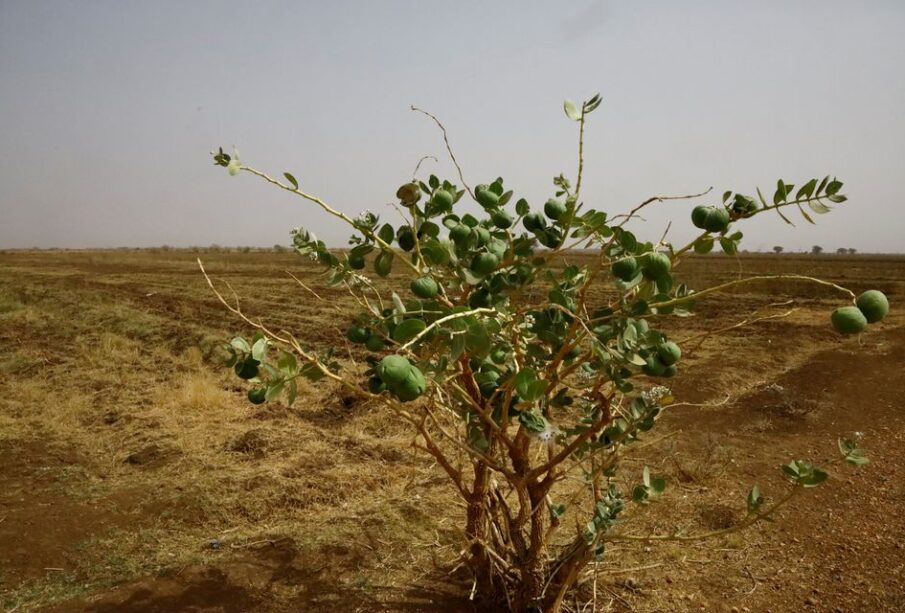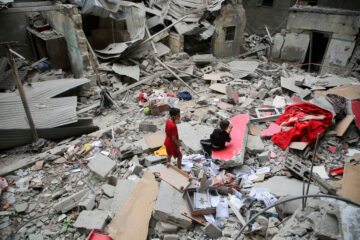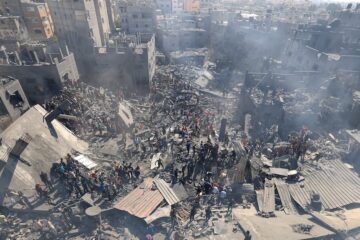Sudanese farmers warn of failing harvests as hunger rises
 A view of a farmland in the Gezira Scheme, Sudan May 17, 2022. Picture taken May 17, 2022. REUTERS/El Tayeb Siddig
A view of a farmland in the Gezira Scheme, Sudan May 17, 2022. Picture taken May 17, 2022. REUTERS/El Tayeb SiddigOn the fertile clay plains of Sudan’s Gezira Scheme, farmers would have normally started tilling the soil weeks ago before planting out rows of sorghum, or peanuts, sesame and other cash crops.
Instead, in a country stalked by sharply rising hunger, swathes of the 8,800 square km (3,400 square mile) agricultural project lie untouched.
Farmers who spoke to Reuters say the government, which has been cut off from billions of dollars in international financing following a coup in October, failed to buy their wheat under promised terms earlier this year.
That, they say, means they did not have the money to fund the new crop now.
Russia’s invasion of Ukraine has further complicated the outlook, driving prices for inputs such as fertilizer and fuel to new highs.
That puts current and future seasons in jeopardy, the farmers say, in an unstable country where the humanitarian situation has deteriorated and it is unclear how authorities will afford to finance imports of increasingly pricy food.
The finance ministry did not comment directly on the farmers’ statements about wheat purchases, but told Reuters it was making efforts to provide the necessary funding.
The ministry said in a statement on Tuesday it had committed to buying up to 300,000 tonnes of wheat and 200,000 tonnes of sorghum, together costing more than $300 million, and was seeking funds from the central bank.
Reuters spoke to more than 20 farmers at the Gezira Scheme, a vast irrigation project just south of the capital Khartoum. All described the situation as desperate, and most said they feared bankruptcy and even prison for not paying back debts.Advertisement · Scroll to continue
One, Nazar Abdallah, said he took out loans assuming that the government would buy his wheat at 43,000 Sudanese pounds (about $75.40) per sack, as was agreed last year.
Dozens of those 100 kg sacks of grain, now stored under a leaky roof, should have been sold in March.
If his crop spoils, he fears he will have no way to repay his debt. “If it rains, I’ll be sent straight to jail, no question,” he said, pointing at the holes in the ceiling.
Similar problems plague Gadaref, the eastern state where much of the country’s traditional grain, sorghum, is grown.
“We buy the fertilizer and fuel at high prices and then when we come to sell our harvest we don’t find a market. The government is impoverishing us,” said a sorghum farmer there, who asked to remain anonymous to avoid involvement in politics.
“The summer season is threatened with collapse. Fifty percent, seventy percent of us might not plant. And that puts the food supply in question,” Ahmed Abdelmagid, another Gezira farmer, said.
ROADSHOWS
Farmers’ woes predate the coup. They are tied to an economic crisis that began under former leader Omar al-Bashir, subsidy reforms pursued by the transitional government and global cost pressures that started before the war in Ukraine.
Last year, the state-owned Agricultural Bank, which has long supported farmers and bought up their wheat for strategic reserves, failed to provide fertilizer and seeds as prices rose, farmers said.
SOURCE: REUTERS










